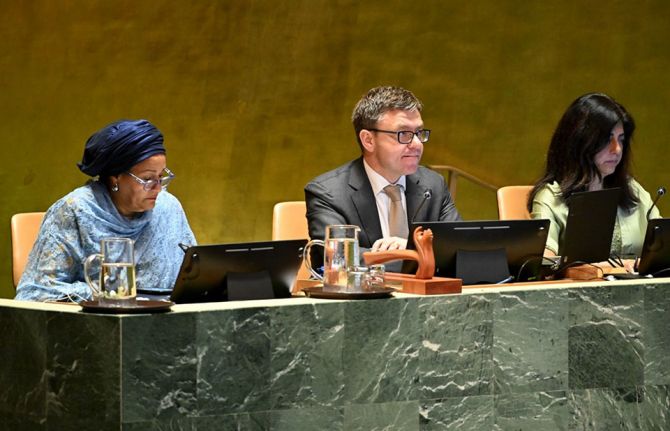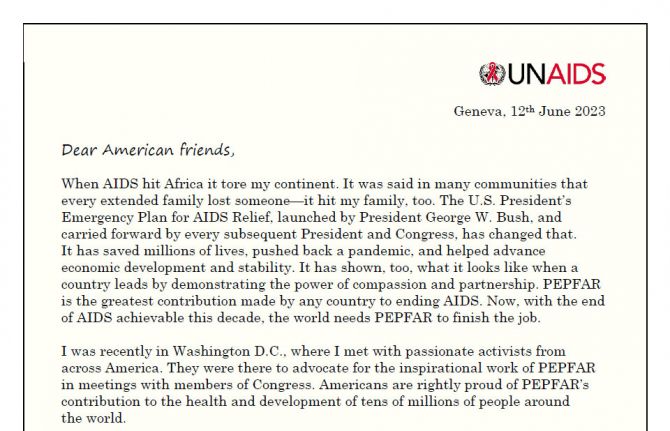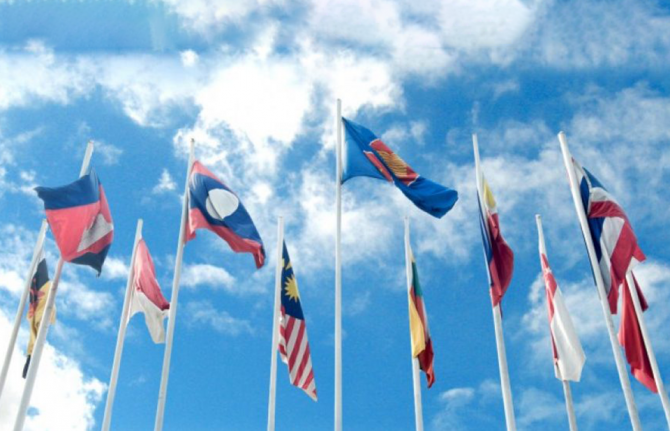
Feature Story
2008 High-Level Meeting on AIDS concludes in New York
12 June 2008
12 June 2008 12 June 2008
The 2008 United Nations High-level Meeting on AIDS concluded Wednesday evening, 11 June 2008. The meeting was attended by stakeholders from across the global AIDS response, including leaders from national governments, civil society groups and United Nations agencies.
The General Assembly gathering was held to review progress made in implementing the 2001 Declaration of Commitment on HIV/AIDS and the 2006 Political Declaration on HIV/AIDS. Discussions focused on the important progress made to date, the challenges that remain, and recommendations for ensuring a sustainable response for the future.
UN Secretary-General Ban Ki-moon presented a comprehensive report based on national progress reports from 147 countries. The report showed that although a significant amount of work still needs to be done, progress had been made in almost every region of the world.
The Secretary-General noted that halting and reversing the spread of AIDS was not only a Millennium Development Goal in itself but also a prerequisite for reaching many of the other goals. The effectiveness of the AIDS response will impact efforts to reduce poverty, improve nutrition, reduce child mortality and improve maternal health and curb the spread of tuberculosis.
UNAIDS Executive Director Dr Peter Piot stressed how important it is for countries to remain committed to the global AIDS response and to work hard to make universal access to HIV prevention and treatment a reality. He noted that these goals will require significant long term efforts, but also recognized the importance of optimism. "AIDS may be one of the defining issues of our time," he said, "but it is clearly now a problem with a solution."
Countries have been guided in their response to the AIDS epidemic by the 2001 Declaration of Commitment on AIDS and the 2006 Political Declaration. The two declarations have played an important role in raising global awareness of HIV and in coordinating efforts to scale up access to HIV prevention, treatment care and support.
The head of the Russian delegation expressed their commitment to the response saying that Russia was ready to ‘assume leadership on AIDS in the region, in understanding the epidemic and in taking responsibility for expanding technical, financial and organizational assistance.
China commended the UN’s ‘unswerving efforts’ to promote global concerted action against AIDS and called its own country’s HIV prevention and treatment efforts ‘strategic issues, vital to the survival of a nation’.
Argentina , who has made the right to health a constitutional right since 1994, highlighted the need to continue working to remove juridical barriers that are undermining the response to the epidemic.
Civil society was strongly represented at the meeting. Representatives from groups from around the world participated in a wide variety of forums, providing essential insight into communities' work to respond to AIDS. On Tuesday 10 June, an interactive civil society hearing was convened with Member States and observers to discuss the myths and realities of scaling up to universal access.
Addressing the hearing via video conference, Mark Heywood, a Representative of International Council of AIDS Service Organizations (ICASO) shared some strong words about the importance of human rights issues in the response to AIDS. He said it was a ‘duty of governments, not a choice, and a duty of civil society to hold governments up to the standards they have accepted on paper’.
The High-level Meeting also featured a series of panel discussions about critical topics in the AIDS response, including universal access, leadership in countries with concentrated epidemics, gender equality, and the long-term response.
2008 High-Level Meeting on AIDS concludes in New
External links:
2008 High-Level Meeting on AIDS official web site
Press centre:
Read closing press release - Global AIDS epidemic far from over (13 June 2008)
Read concluding remarks by the President of the United Nations General Assembly (12 June 2008)
Read statement by UNAIDS Executive Director Dr Peter Piot at the UN General Assembly High Level Meeting on AIDS (10 June 2008)
Read press release – 9 June 2008 ( en | fr | es | ru | ch )
Multimedia:
2008 High-level Meeting Webcast
View photo gallery
Publications:
Report of the Secretary-General: Declaration of Commitment on HIV/AIDS and Political Declaration on HIV/AIDS: midway to the Millennium Development Goals [A/62/780] ( en | fr | es | ru | ar | ch )
2001 Declaration of commitment on HIV/AIDS (pdf, 1.84 Mb)



